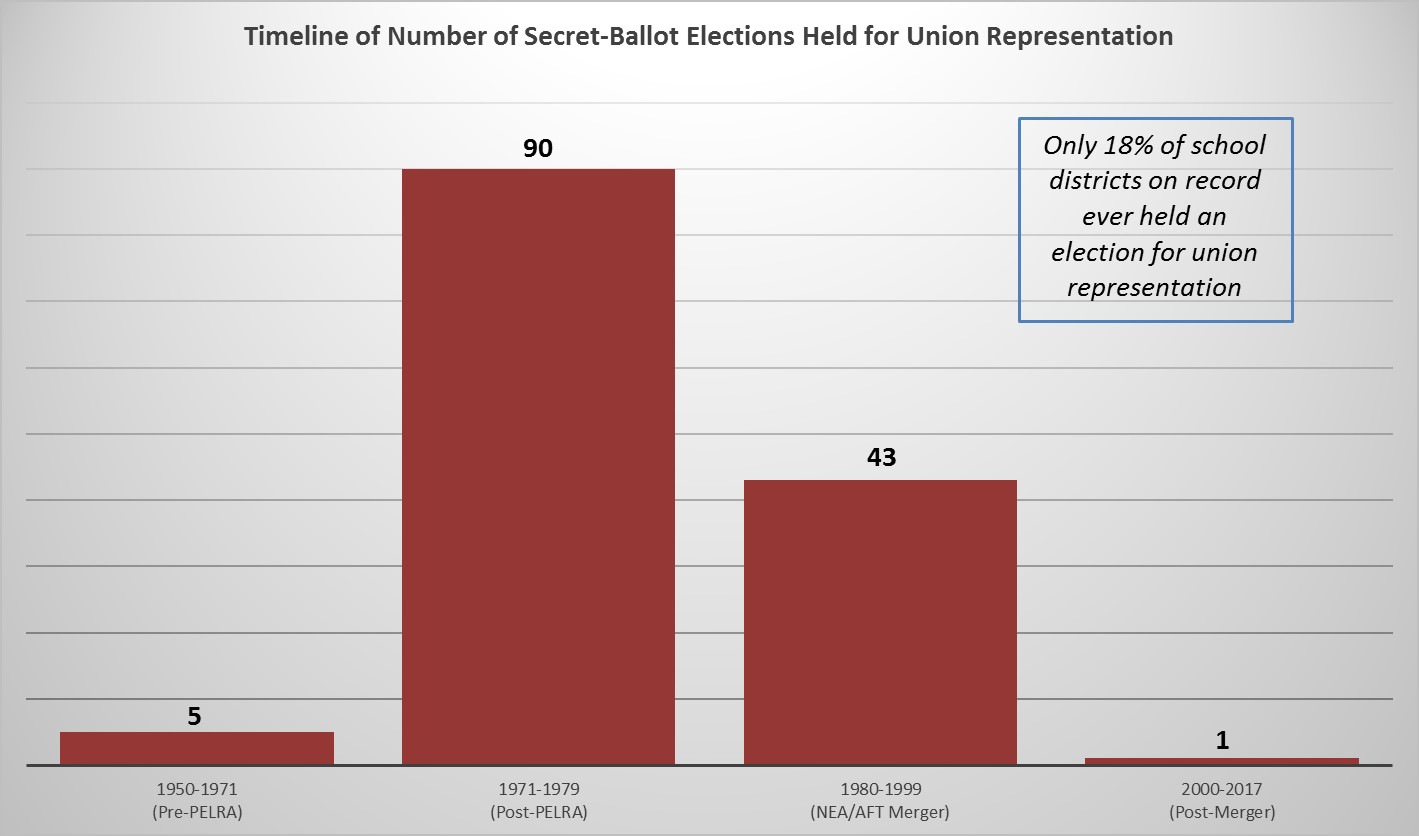Teacher workplace democracy is a principle but not a practice
Workplace democracy is, unfortunately, a short-lived promise to teachers in Minnesota. While teachers’ unions often claim to favor a democratic approach to our public education system, teachers are rendered mute when it comes to choosing their own union. Workplace democracy is a principle, not a practice.
The legal exclusive representation of public-sector unions to bargain collectively for government employees (including teachers) was enacted in Minnesota by the Public Employees Labor Relations Act (PELRA) of 1971. On paper, public employees legitimize their representation through a secret ballot vote in favor of union representation. In practice, the vast majority of teachers in the classroom today have never voted in a union certification election. The union that represents them was chosen by its members back in the 1970s, and because unions do not have to stand for re-election after being formed, teachers have no meaningful opportunity to vote for a new union or hold their current union more accountable.
All Minnesota public school districts have had union representation in place during the years after PELRA, but only 18 percent of school districts on record with the Bureau of Mediation Services (BMS) ever held a secret-ballot election for this representation. Only five teachers have voted in a certification election across all school districts from 2000-2017, according to available data from BMS. That certification election was held in the tiny Pine Point Public School District (Becker County) in 2000 with five votes in favor of exclusive representation by Education Minnesota out of a total of eight eligible votes.

Besides secret-ballot elections, union representation in the school districts on record at BMS was either amended to reflect new representation under Education Minnesota or recognized in other ways that did not require a vote (joint request, voluntary recognition, or grandfathering).
Minnesota teachers are being represented by an heirloom union—a union selected by teachers from a generation or more ago—that may not serve their 21st-century interests or expectations. Teachers rely on their union to negotiate salary, health benefits, hours, and work conditions on their behalf. Full dues-paying members are eligible to vote on the contract negotiated by the union with their employer, and they get to vote on union leadership, but shouldn’t they also be able to vote on whether or not the union—which has the exclusive power to represent all teachers, including non-members—has represented them well?
Requiring re-certification elections of bargaining units on a regular basis will extend Minnesota teachers’ voting rights and give them a say in choosing who represents them and how. They will then be able to put into practice the workplace democracy they deserve.